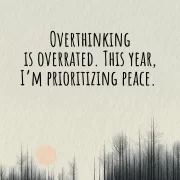Here are the key signs of codependency.
You might hear the term codependency often. But what exactly does it mean to be in a codependent relationship? While love and support are necessary in any healthy partnership, codependency takes these elements to an extreme, leading to an unhealthy dynamic. Recognizing the signs of codependency is crucial, not just for the health of your relationship but also for your personal, mental, and emotional well-being. It’s about understanding where healthy interdependence ends and detrimental over-reliance begins.
This comprehensive guide will explore the signs psychologists identify as indicative of a codependent relationship. Keep reading for a deep dive into what codependency truly means.
What Is Codependency?
Codependency is a term widely used yet often misunderstood. It refers to a relationship where one person excessively relies on the other for emotional support, approval, and identity. Psychologists view it as more than being clingy or overly dependent; it’s a complex emotional and behavioral condition affecting an individual’s ability to have healthy, mutually satisfying relationships.
Traditionally, the term is used to describe the partner or family member of an individual with a substance use disorder. It implied a certain kind of relationship dynamic where the codependent individual enabled the addict’s behavior. However, over time, psychologists have broadened the definition. Today, it encompasses a wide range of behaviors in various relationships, not just those involving substance abuse.
The concept of codependency evolved through various stages in psychological research and therapy. Initially centered around the “caretaker” roles in families dealing with addiction, it has expanded over the past few decades. This evolution reflects a growing understanding that codependent behaviors can occur in any relationship. It may stem from a variety of underlying psychological issues, including low self-esteem, fear of abandonment, or a deep-seated need for approval.
What Are the Signs of a Codependent Relationship?

Sign 1: Excessive Emotional Reliance May Reveal a Codependent Person
At the heart of codependency is an excessive emotional reliance on a partner. This reliance goes beyond the normal interdependency people experience in healthy relationships. It manifests as an overwhelming need for the other person’s presence and reassurance to feel secure or happy. Instead of viewing the relationship as part of a well-rounded life, a codependent person may view it as their sole source of happiness and validation.
From a psychological standpoint, this excessive emotional reliance often stems from deeper issues. Psychologists suggest that it can be rooted in early childhood experiences, where an individual may not adequately meet their emotional needs. This lack of fulfillment can lead to an adulthood where one constantly seeks external validation, especially from significant others, to feel complete or valued.
Furthermore, psychologists find that this trait often leads to a cycle of dependency that is hard to break. The codependent person, in their quest for constant reassurance, may unconsciously choose partners who reinforce their neediness—either by being emotionally unavailable or by exhibiting caretaking behaviors. This cycle, while providing temporary relief, often perpetuates the underlying issues of low self-esteem and emotional insecurity.
Sign 2: Lack of Personal Identity Reveals Codependency
In a codependent relationship, one’s sense of identity often becomes deeply entangled with that of their partner. This phenomenon goes beyond the natural blending of interests and traits in many relationships. It involves a significant loss of personal identity. This individual’s decisions, preferences, and feelings become heavily influenced or determined by their partner. Their interests, hobbies, and social life may diminish or disappear as their focus shifts almost entirely to the relationship and their partner’s needs and desires.
The merging of identities in codependent relationships can have profound psychological implications. It often stems from an underlying fear of abandonment or rejection, driving individuals to mold themselves according to their perception of their partner’s preferences. This loss of self can lead to decreased self-esteem and increased anxiety. It can also cause depression. Additionally, it can cause difficulties in discerning one’s own emotions and desires, leading to a disconnection from one’s true self. This disconnection makes it harder to recognize and fulfill personal needs and aspirations, further perpetuating the cycle of codependency.
Sign 3: Compulsion to Fix and Control
A defining characteristic of codependent relationships is a compulsive need to fix or control one’s partner. This can manifest as constantly trying to solve their problems, making decisions for them, or changing aspects of their behavior or personality. The codependent person often feels responsible for their partner’s well-being and believes that they know what is best for them. This compulsive caretaking is not just about helping; it’s an attempt to feel needed and secure in the relationship.
This need to fix or control often arises from a deep-seated fear of loss or instability. By exerting control, the codependent individual feels a sense of safety and security in the relationship. It’s also a way to avoid addressing their issues. By focusing on their partner’s problems, they can neglect their internal struggles, such as low self-esteem, unmet emotional needs, or unresolved trauma. Additionally, this behavior is often reinforced when the partner responds positively to the caretaker, creating a cycle that is difficult to break.
Sign 4: Difficulty with Setting Boundaries May Reveal a Codependent Partner
Healthy relationships are characterized by clear boundaries that respect individual needs and preferences. Boundaries help define where one individual ends and the other begins in terms of emotions, thoughts, and physical space. They are essential for maintaining individuality, personal integrity, and mutual respect.
In codependent relationships, setting boundaries is particularly challenging. Codependents often have a deep fear that setting boundaries will lead to rejection or abandonment. There may also be a deeply ingrained belief that they are responsible for others’ emotions and well-being, making asserting their needs or saying no difficult. This lack of boundaries often leads to over-involvement in the partner’s life, neglecting one’s needs, and tolerating unacceptable behavior. From a psychological perspective, learning to set healthy boundaries is a necessary step in breaking the cycle of codependency. It requires recognizing one’s self-worth and understanding that setting boundaries is healthy and necessary for a balanced and fulfilling relationship.
Sign 5: Unhealthy Attachment to Partner’s Problems
A striking sign of codependency is an unhealthy attachment to the partner’s problems. Individuals in such relationships often find themselves deeply absorbed in their partner’s issues, sometimes even more than their own. It can manifest as an excessive focus on helping, rescuing, or solving their partner’s problems, often at the expense of their own needs. The codependent person might feel they are only valuable or significant when they are needed, which leads them to prioritize their partner’s issues over everything else.
Psychologically, this attachment can be understood as a form of escapism. By immersing themselves in another person’s problems, individuals with codependency can avoid confronting their issues or painful feelings. It also stems from a belief that their self-worth is intertwined with their ability to care for or ‘fix’ their partner. This belief often originates from past experiences where their value was measured by their usefulness or ability to please others. As a result, they develop a pattern of over-involvement in their partner’s issues, perpetuating the cycle of codependency.

Sign 6: Dependency on Relationship for Self-Worth
Another hallmark of a codependent relationship is the dependency on the relationship for self-worth. Individuals in such dynamics often base their self-esteem and sense of worthiness on their relationship status, their partner’s approval, or their capacity to maintain the relationship, irrespective of its healthiness. Their identity becomes so intertwined with the relationship that they struggle to see their value outside it.
This dependency comes from deep-seated insecurities and low self-esteem. Codependent individuals might have experienced conditional love or validation in the past. That experience made them believe they are worthy only when they are in a relationship or someone needs them. This belief system traps them in a cycle where their sense of self-worth is constantly at the mercy of their relationship dynamics. Psychologists emphasize the importance of developing a sense of self-worth that is independent of one’s relationship status or partner’s perception. Taking that step is critical in overcoming codependency.
Sign 7: Constant Need for Reassurance and Validation
A constant need for reassurance and validation is a prominent feature of codependent relationships. Individuals with codependent tendencies often seek continuous affirmation from their partner. They may frequently ask for reassurance about their partner’s feelings, the stability of the relationship, or their personal qualities. This constant need often arises from deep-seated insecurity and fear of abandonment.
The search for validation indicates an inner emptiness or void the individual is trying to fill externally. This behavior is rooted in an unstable sense of self, where one’s identity and value heavily depend on others’ perceptions and approval. The constant need for reassurance can be exhausting for both partners and strain the relationship. Therapy and self-work, such as building self-esteem, recognizing one’s worth independently, and understanding the roots of these insecurities, are crucial steps in addressing this aspect of codependency.
Sign 8: Neglecting Personal Needs Signals a Codependent Person
A prevalent issue in codependent relationships is the neglect of personal needs. Individuals often put their partner’s needs and the relationship above everything else, to the point where their needs, whether emotional, physical, or mental, are consistently unmet or ignored. This could manifest in neglecting personal hobbies, health, social interactions, and professional aspirations.
This neglect stems from the belief that one’s needs are less important than their partner’s. This belief is often rooted in low self-esteem and a fear that attending to personal needs might jeopardize the relationship. This behavior is a form of self-sacrifice that is less about genuine altruism and more about maintaining the relationship at any cost. It’s a problematic pattern that affects the individual’s well-being, leading to resentment and an imbalanced, unhealthy relationship dynamic.
Sign 9: Fear of Abandonment
A core characteristic of codependency is an overwhelming fear of abandonment. This fear can be so intense that it dictates the behaviors and choices of the codependent person within the relationship. It manifests as a constant worry about the relationship ending, a preoccupation with the partner’s activities, and extreme distress at the idea of being alone.
Psychologists see this fear as stemming from past experiences, possibly from early childhood, where there was a significant disruption in attachment or a lack of consistent, nurturing care. These early experiences can lead to an anxious attachment style, making individuals overly dependent on their partners for emotional security and validation. The fear of abandonment isn’t only a fear of being physically alone but also a fear of emotional isolation.
Sign 10: Difficulty Communicating in the Relationship
Effective communication is often a challenge in codependent relationships. This can include difficulty expressing personal needs or fears of conflict, leading to avoidance of important discussions. It may also look like a tendency to agree or go along with the partner, even if sacrificing one’s beliefs. This communication style leads to a lack of authentic, open dialogue, which is crucial for the health of any relationship.
Poor communication in codependency frequently comes from a fear of rejection or upsetting the partner. The individual might have learned to suppress their voice to maintain harmony or avoid conflict. While it might seem to keep the peace, this behavior leads to a buildup of unexpressed emotions and resentment. Overcoming these communication barriers involves learning to value one’s opinions and needs and developing the courage to express them healthily and constructively in the relationship.
Final Thoughts on Knowing the Ten Signs of a Codependent Relationship
Recognizing the signs of codependency is crucial to building healthier, more fulfilling relationships. These signs, ranging from excessive emotional reliance to difficulty in communication, highlight the complexity and depth of codependent dynamics. If you resonate with these signs, acknowledging them is a brave and important first step.
Seeking professional help and guidance can be invaluable in understanding and addressing these patterns. Therapy, support groups, and educational resources can provide the tools and support needed to work through codependent behaviors. Most importantly, remember that you deserve a valued, respected, and autonomous relationship. So, taking steps toward autonomy can benefit you and your relationship.
The post Psychologists Reveal 10 Signs of a Codependent Relationship appeared first on Power of Positivity: Positive Thinking & Attitude.






